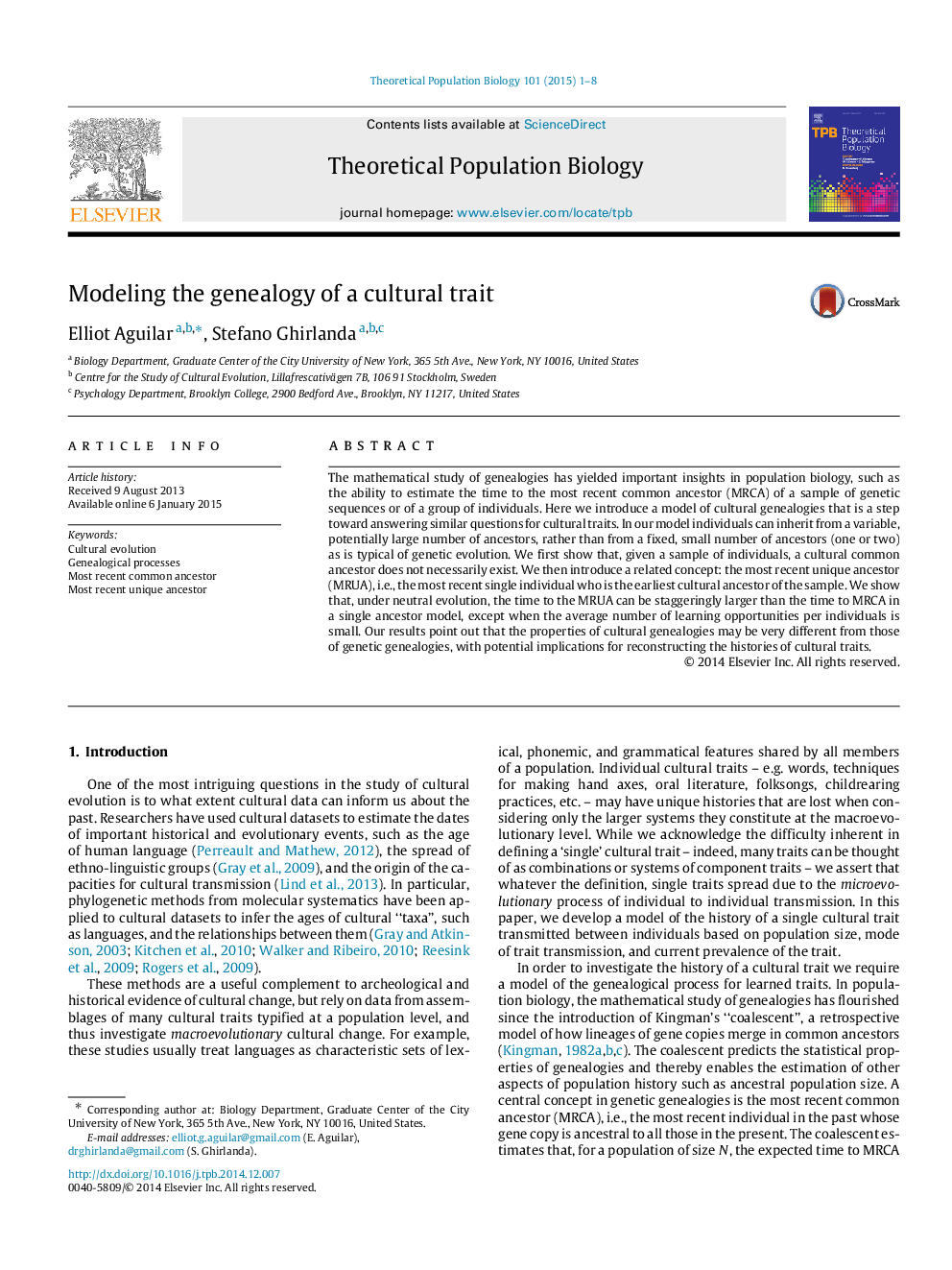| Article ID | Journal | Published Year | Pages | File Type |
|---|---|---|---|---|
| 6372324 | Theoretical Population Biology | 2015 | 8 Pages |
Abstract
The mathematical study of genealogies has yielded important insights in population biology, such as the ability to estimate the time to the most recent common ancestor (MRCA) of a sample of genetic sequences or of a group of individuals. Here we introduce a model of cultural genealogies that is a step toward answering similar questions for cultural traits. In our model individuals can inherit from a variable, potentially large number of ancestors, rather than from a fixed, small number of ancestors (one or two) as is typical of genetic evolution. We first show that, given a sample of individuals, a cultural common ancestor does not necessarily exist. We then introduce a related concept: the most recent unique ancestor (MRUA), i.e., the most recent single individual who is the earliest cultural ancestor of the sample. We show that, under neutral evolution, the time to the MRUA can be staggeringly larger than the time to MRCA in a single ancestor model, except when the average number of learning opportunities per individuals is small. Our results point out that the properties of cultural genealogies may be very different from those of genetic genealogies, with potential implications for reconstructing the histories of cultural traits.
Related Topics
Life Sciences
Agricultural and Biological Sciences
Agricultural and Biological Sciences (General)
Authors
Elliot Aguilar, Stefano Ghirlanda,
